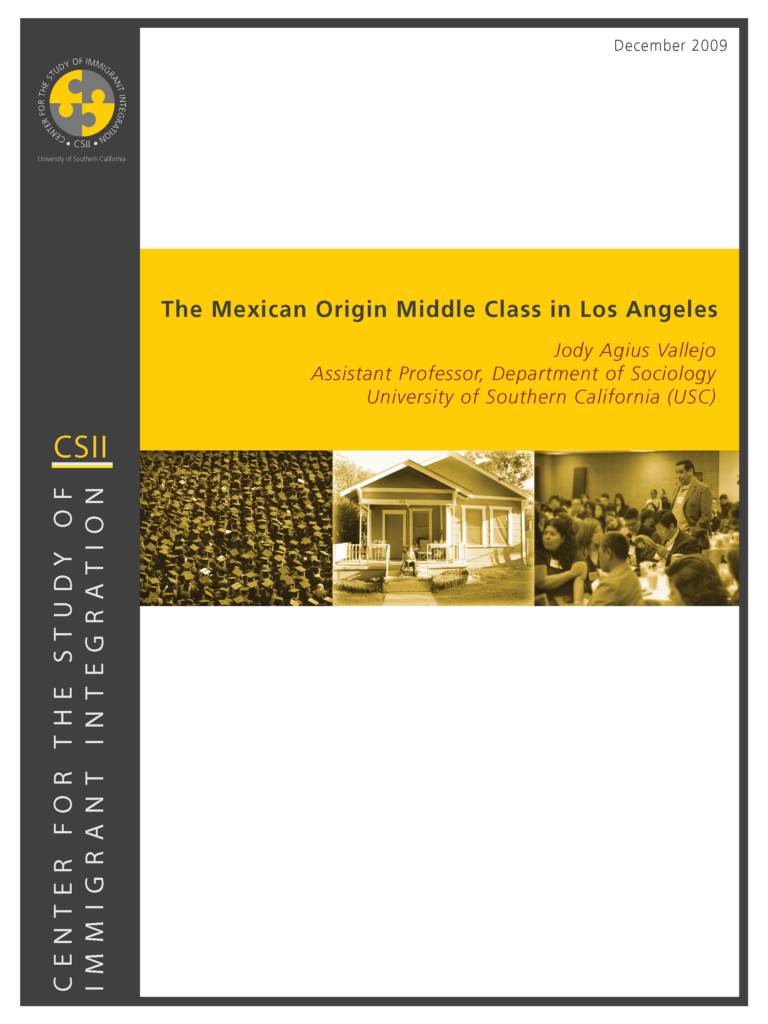
December 2009
By Jody Agius Vallejo, Assistant Professor in the Department of Sociology at the University of Southern California
Please note: reports dated earlier than June 2020 were published under our previous names: the USC Program for Environmental and Regional Equity (PERE) or the USC Center for the Study of Immigrant Integration (CSII).
The dawn of the new millennium has been rife with controversy over the context of the new immigration, especially the growing proportion of America’s population with Mexican roots. Because Mexicans comprise the largest proportion of immigrants and are typically low-wage labor migrants, the “browning” of America has led scholars, politicians and the American public to increasingly postulate about how immigrants and their children will incorporate into American society. Absent from the dominant narrative of nativists are reflections on successful middle-class Mexican Americans.
In The Mexican Origin Middle Class in Los Angeles, Jody Agius Vallejo examined an understudied population, the Mexican-origin middle class, and argued that scholarly research and media depictions are biased towards the downwardly mobile, greatly contributing to the idea that the Mexican-origin population is monolithic in terms of class, education, income and occupation. Thus, the various paths of incorporation that Mexican immigrants and their children may follow into the middle class are reflected inaccurately.
About the author
Jody Agius Vallejo is an Assistant Professor of Sociology at the University of Southern California and a CSII Affiliated Scholar. She specializes in immigration and immigrant integration, race/ethnicity and the Mexican-origin population.



